Filter by
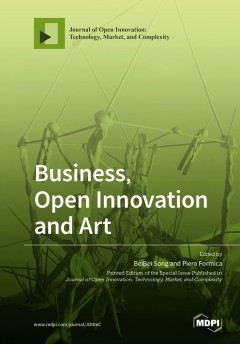
Business, open innovation and art
After its predecessors turned humans and organizations into machines, the Fourth Industrial Revolution is turning machines into humans. As digital machines acquire more and more cognitive intelligence, the development of humans becomes ever more vital, for society and business alike. Time has come to recognize the value of art and humanities. As the world experiences massive turbulence and comp…
- Edition
- -
- ISBN/ISSN
- 9783039366163
- Collation
- xvi, 135p.: ill.
- Series Title
- -
- Call Number
- 705 BUS b
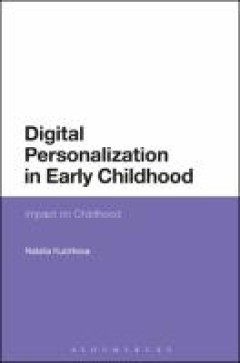
Digital personalization in early childhood : impact on childhood
This book is available as open access through the Bloomsbury Open Access programme and is available on www.bloomsburycollections.com. Digital personalization is an emerging interdisciplinary research field, with application to a variety of areas including design, education and publication industry. This book focuses on children’s education and literacy resources, which have undergone importan…
- Edition
- -
- ISBN/ISSN
- 9781474290814
- Collation
- 224p
- Series Title
- -
- Call Number
- 371.394 NAT n
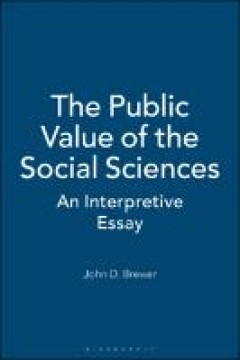
The Public Value of the Social Sciences : An Interpretive Essay
What is the purpose of social science? How can social science make itself relevant to the intractable problems facing humanity in the twenty-first century? The social sciences are under threat from two main sources. One is external, reflected in a global university crisis that imposes the marketization of higher education on the ancient practice of scholarship. The other, internal threat is soc…
- Edition
- -
- ISBN/ISSN
- 9781780931784
- Collation
- xii, 240p : ill
- Series Title
- -
- Call Number
- 300.1 JHO p

3D printing technologies
The family of technologies collectively known as additive manufacturing (AM) technologies, and often called 3D-printing technologies, is rapidly revolutionizing industrial production. AM’s potential to produce intricate and customized parts starting from a digital 3D model makes it one of the main pillars for the forthcoming Industry 4.0. Thanks to its advantages over traditional manufacturin…
- Edition
- -
- ISBN/ISSN
- 9783036531700
- Collation
- ix, 98p; ill
- Series Title
- -
- Call Number
- 620.0042 PRI P
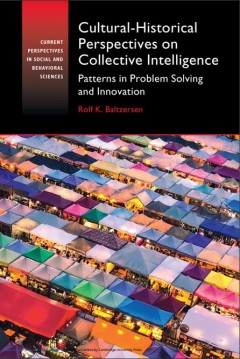
Cultural-historical perspectives on collective intelligence : patterns in pro…
In the era of digital communication, collective problem solving is increasingly important. Large groups can now resolve issues together in completely different ways, which has transformed the arts, sciences, business, education, technology, and medicine. Collective intelligence is something we share with animals and is different from machine learning and artificial intelligence. To design and u…
- Edition
- 8
- ISBN/ISSN
- 9781108981361
- Collation
- xviii, 448p, ill.
- Series Title
- -
- Call Number
- 006.3824 CUL R
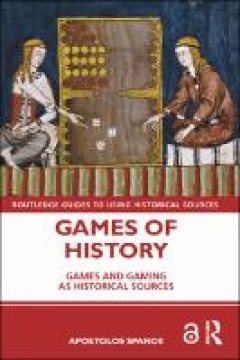
Games of history : games and gaming as historical sources
Games of History provides an understanding of how games as artefacts, textual and visual sources on games and gaming as a pastime or a “serious” activity can be used as sources for the study of history. From the vast world of games, the book’s focus is on board and card games, with reference to physical games, sports and digital games as well. Considering culture, society, politics and me…
- Edition
- 10
- ISBN/ISSN
- 9780367358914
- Collation
- ix, 200p.; ill.
- Series Title
- -
- Call Number
- 371.397 GAM s

The Cambridge Handbook of Health Research Regulation
The first ever interdisciplinary handbook in the field, this vital resource offers wide-ranging analysis of health research regulation. The chapters confront gaps between documented law and research in practice, and draw on legal, ethical and social theories about what counts as robust research regulation to make recommendations for future directions. The Handbook provides an account and analys…
- Edition
- -
- ISBN/ISSN
- 9781108620024
- Collation
- xix, 444 p ; ill
- Series Title
- -
- Call Number
- 344.04196 CAM G

YOUTH AND MEMORY IN EUROPE : defining the past, shaping the future
What kind of historical narratives are young people exposed to and what do they make of them? This volume brings together humanities and social sciences scholars in a study of youth and memory in different European regions. It explores the connections between the historical narratives expressed by young people and the broader, multifaceted historical narratives mediated by their cultures.
- Edition
- 6
- ISBN/ISSN
- 9783110733501
- Collation
- xv, 390p.
- Series Title
- -
- Call Number
- 940.072 YOU k
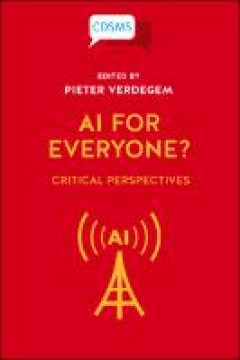
AI FOR EVERYONE? CRITICAL PERSPECTIVES
We are entering a new era of technological determinism and solutionism in which governments and business actors are seeking data-driven change, assuming that Artificial Intelligence is now inevitable and ubiquitous. But we have not even started asking the right questions, let alone developed an understanding of the consequences. Urgently needed is debate that asks and answers fundamental questi…
- Edition
- -
- ISBN/ISSN
- 9781914386169
- Collation
- 310p.
- Series Title
- -
- Call Number
- 006.3 FOR v

Essays in Anarchism and Religion : Volume III
"Anarchism and religion have historically had an uneasy relationship. Indeed, representatives of both sides have regularly insisted on the fundamental incompatibility of anarchist and religious ideas and practices. Yet, ever since the emergence of anarchism as an intellectual and political movement, a considerable number of religious anarchists have insisted that their religious tradition neces…
- Edition
- -
- ISBN/ISSN
- 9789176351109
- Collation
- 342 p.
- Series Title
- -
- Call Number
- 320.57 ESS A
 Computer Science, Information & General Works
Computer Science, Information & General Works  Philosophy & Psychology
Philosophy & Psychology  Religion
Religion  Social Sciences
Social Sciences  Language
Language  Pure Science
Pure Science  Applied Sciences
Applied Sciences  Art & Recreation
Art & Recreation  Literature
Literature  History & Geography
History & Geography